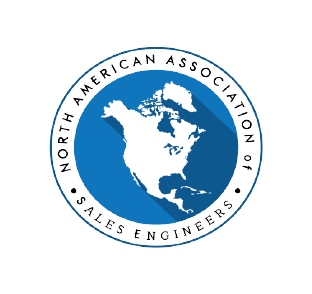North American Association of Sales Engineers
B2B- A View from a Purchaser
For roughly 15 years of my career, my role was that of a project manager and purchaser. Each week I would be primarily responsible for purchasing many different types of products and services. The price tag on these purchases would range anywhere from $40 up to $1.0 million, with an average of around $80,000.
Through this lens I’d like to share with the SE audience who I would buy from, and why, and when. Looking at things from the other side of B2B is critical to bettering our success in sales. Most of what I list below matches up to my experience from the Seller/ Sales Engineering side of the equation as well.

In no specific order, this was how and why I made business purchases:
- If it was not a mandatory and urgent purchase need, the default of not buying anything was always a clear leader. Non-action is often the easiest thing to do (or not do).
- Pricing and savings: I would never consider an alternate product unless it was at least a 15% discount off my current product/brand. This assumes that the 2 products were otherwise equivalent. Often times a new vendor would come in and say they could save me 10%, but generally that was not quite enough for it to be worth the hassle and the unknown.
- To switch vendors or products, the alternate would have to clearly be better, or save me significant time, or save me at least 15% in price.
- Business is difficult; making sufficient profit is often difficult. I didn’t want my dealings with vendors to also be difficult. Whomever made it easier to do business with- they got my attention. Less steps, less paperwork, less legal, etc.
- I bought on my timeline, not on the vendor’s timeline. The only reason why I would ever consider buying “now” instead of in 2-3 weeks like I was intending to is if there was a significant discount for me in doing so (at least 10%).
- The devil you know is better than the devil you don’t know. Of course even your regular vendors are not perfect, and there would be something that you would prefer could be changed or improved. But generally speaking, I didn’t chase unknown and unproven options.
- I gave a lot of credence to who else in a similar line of work was using their product/ solution. That was key. This of course made it difficult for new products to get very far. I would ask- who and where has this been used around here, and in what fashion? If their answer was nobody- I would essentially end it right there. But sometimes they would show me that it had been used within or for their own company, or as part of a beta test to some other company that did not have to pay for it. I never gave a lot of consideration with those 2 scenarios- as it was not a true market-tested application.
- More often than not, I did do business with people that I liked. It didn’t work out all the time, but typically I would choose to buy from someone I got along well with over some other person. Personalities and attitudes DO matter.
The preceding points may not be “textbook”, but they seemed to work out for me for many years. As a seller, I do always recall what it was like to be the purchaser in a pending transaction. I believe this has helped in my career in sales engineering and technical sales.


